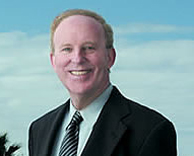|
GEORGE A. SCHEELE, III, M.D. George A. Scheele, M.D., is currently the Founder and former Chairman and CEO of Viral Shield Pharmaceuticals, Inc. , which has developed topical products, which provide prevention and early treatment against a broad spectrum of envelope viruses, including HIV, HTLV, Herpes, Hepatitis B & C, Influenza and Pox viruses. Dr. Scheele is the Founder and Chairman of Nova-Life, Inc. , an E-commerce business, which markets Anti-Aging skin-care products and products designed to restore the radiance of skin and nails. He is President of La Jolla Biosciences, LLC , an in-licensing and out-licensing intellectual property firm specializing in global solutions in health care. He also serves as President of the Institute of Genomic Medicine, Inc. , a non-commercial corporation whose mission is to elucidate the genetic causes of chronic degenerative diseases in humans. He is the founder and former Chairman, President and CEO of AlphaGene, Inc. , a genomics company that has introduced AlphaGenomics™, the first disease-based, full-length genomics technology platform, to the bio/pharmaceutical industry. Dr. Scheele received an A.B. degree in biology from Princeton University and an M.D. degree from Johns Hopkins Medical School . Following internship and residency in Medicine at Johns Hopkins Hospital and postdoctoral training at the Rockefeller University , he served in professorial positions at Yale University School of Medicine (1974), the Rockefeller University (1974-88) and Harvard Medical School (1988-1995). Dr. Scheele, a two-time Nobel associate, is an internationally recognized authority on the cellular and molecular aspects of (i) protein sorting and trafficking, (ii) translocation of proteins across the RER membrane, (iii) processing of proteins in the regulated secretory pathway, (iii) regulation of gene expression in pancreatic adaptation, (iv) synthesis of full-length genes (cDNAs) and (v) potential treatments for Cystic Fibrosis and other pulmonary diseases. His scientific achievements include: • Invention of novel technologies, including (i) development of Pancreatic Lobules for the in vitro study of pancreatic function, (ii) development of 2D gel electrophoresis, which separates proteins by both charge and size, (iii) membrane models for studying the translocation of secretory enzymes across the RER membrane, (iv) improvement of in-vitro translation systems through the addition of purified RNase inhibitor, (v) development of the first procedure to significantly increase the full-length character of cDNA libraries • Seminal works which helped defined the secretory pathway, honored in the 1974 Nobel Prize in Medicine awarded to George E. Palade • Seminal work which helped establish the "signal peptide hypothesis" in the translocation of secretory proteins across the RER membrane, honored in the 1999 Nobel Prize in Medicine awarded to Gunter Blobel. This work established canine pancreatic microsomal membranes as the standard in vitro model for protein targeting and translocation and determined the structure of the first signal peptide believed to direct the translocation of secretory proteins across the RER membrane in the pancreas. • Definition of the role of the redox potential and chaperones in the correct folding of proteins sequestered into the rough endoplasmic reticulum (RER). • Discovery of the novel GP2/THP gene family, involved in regulating endocytosis and recycling of secretory membranes at the apical plasma membrane (APM) of regulated secretory cells throughout the body. • Discovery of the role of pH and enzyme mechanisms in coupling endocytosis and exocytosis at the APM of pancreatic acinar cells. • Characterization of downstream molecular defects resulting from genetically defective CFTR isoforms leading to the discovery of the ultimate biochemical deficiency in Cystic Fibrosis. • Elucidation of mechanisms by which hormones and nutritional substrates regulate gene expression and therefore pancreatic adaptation to change in food composition in the diet. These studies elucidated the mechanisms and extended the observations of I. P. Pavlov on adaptation of pancreatic enzymes to changes in the diet. Dr. Scheele's academic career spans 35 years of scientific research and administrative experience, including a long record of successful research funding from a variety of government and private sources. He is author of 110 scientific papers and book chapters and has organized the publication of 3 books. He has four issued U.S. patents with corresponding international filings and three patents applications pending review by the PTO. |
|
